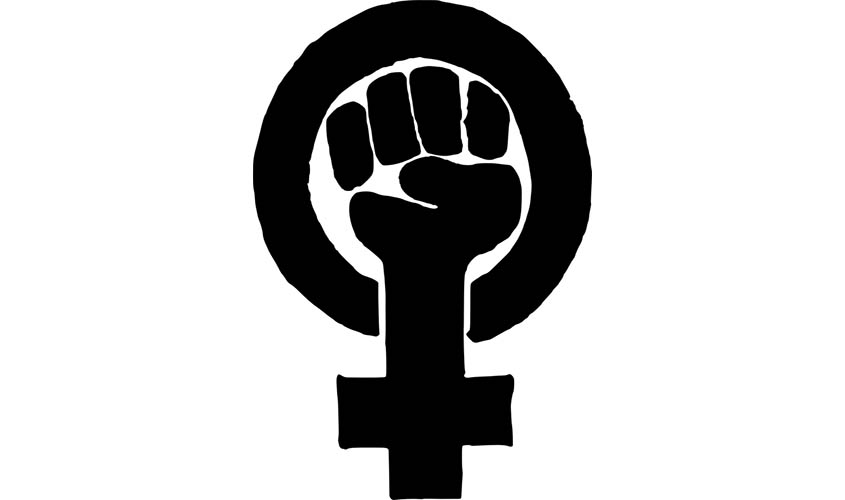The recent spate of rapes highlighted by the media has once again brought the champions of feminism to the fore. It is an ideology whose authenticity and goodness are never examined; they are assumed to be true. It may be time to scrutinise contemporary feminism, which nowadays also attracts celebrities.
As an ideology upholding equal political, economic, social, and religious rights, feminism has played a salutary role in history. It is during the so-called second wave of feminism, during the 1960s and 1970s, that radicalism infected the movement and practically rendered it collectivistic, illiberal, and counter-Enlightenment.
This was like cutting off the branch one was sitting on. For, according to Encyclopaedia Britannica, “The feminist voices of the Renaissance never coalesced into a coherent philosophy or movement. This happened only with the Enlightenment, when women began to demand that the new reformist rhetoric about liberty, equality, and natural rights be applied to both sexes.”
The key concept of contemporary feminism, objectification, can give us some clue to its waywardness. In a way, it’s a questionable philosophical concept, if not downright a non-concept; it’s an epistemological monstrosity. For cognition and cogitation presuppose the existence of a subject and an object. When I see a table or a person, I objectify it or them; similarly, when somebody sees me, they objectify me. It is only by way of objectification that information, knowledge, thoughts, feelings, etc., are made possible in the first place.
Whether it is the empiricist tradition in the Anglo-Saxon world or Continental rationalism, the knowing subject and, by extension, the object known are implicitly accepted—notwithstanding fundamental differences between the two streams. Similarly, the Indian schools of philosophy also accept a knowing subject, even as there are differences between them as to what should be regarded as authentic means or pramanas of knowledge. As a natural corollary, they also accept objects and thus objectification.
The German philosopher, Franz Clemens Brentano (1838-1917), often regarded as a forerunner of phenomenology and analytic philosophy, correctly pointed out, “Every mental phenomenon includes something as object within itself.”
Philosophers like Heidegger and Sartre made phenomenological and ontological inquiries. Radical feminists almost appropriated them, hollowed those out of the philosophical kernel, made the remainder gender-specific, transmogrified it into a moralising and dubious concept, and then tended to create or at least see a schism in humankind. Objectification thus is a peculiar creation or worldview of the feminists.
For instance, one of the seven notions of objectification, in the words of Martha Nussbaum, is “instrumentality”, in which “the objectifier treats the object as a tool for his or her purposes”. But don’t all of us, men and women, do it all the time? When I call a plumber to fix a tap, I treat him as a means, an object, a pair of hands accompanied with a skill-set to achieve a purpose; so does he, treating me as an instrument to pocket a certain sum. We are both objectifiers and the objectified at the same time.
The feminists’ theorising and moralising don’t stay within the confines of abstract philosophy and seminar circuits; these seep through, to use a feminist term, the instrumentalities of social science departments in universities, the media, and other opinion-making paraphernalia. Since their theorising is birthed in error, their actions are almost invariably in dissonance with the imperatives of Enlightenment; and the consequences are deplorable, for they erode liberty.
One of the biggest upshots of the Enlightenment was the principle that the individual should be allowed to do whatever they want to so long as they don’t hurt others. Counter-Enlightenment ideologies like nationalism, Nazism, socialism, and communism, on the other hand, are essentially collectivist; they prescribe a worldview that they seek to impose upon society and nation; and, concomitantly, they also proscribe or at least tend to suppress the viewpoints, ideas, principles, etc., that they disapprove of. Feminism is clearly part of this set, for it seeks to enforce its standards and values on the group it claims to represent, women. Just like nationalists of various hues.
Sounds paradoxical, but true it is nonetheless that both feminists and nationalists are cut from the same cloth, though subsequently dyed in different hues and used for different purposes; the warp and woof, though, stay the same. Both oppose beauty pageants—the feminist on the grounds that these objectify women, the nationalists because these destroy Indian culture, whatever that means. The desires and aspirations of the girls wanting to participate in them—and the economic rights of organisers—have no meaning for feminists and nationalists.
The response to rape and sexual molestation is also similar; having little regard for individual liberty, both shift the guilt from the individuals concerned to abstract nouns. For the feminist, the real culprit is “patriarchal mindset”; for the sanskari nationalist, it is the invasive Western culture.
Both oppose pornography—the feminist because it degrades women, the nationalist because it undermines the traditional value system.
Both are uncomfortable with man-woman sex for pleasure, joy, or togetherness. The feminist sees “sexual politics” all-around; her nationalist cognate tolerates copulation only for procreation which, in turn, should serve the holy purpose of nation-building. The extreme ones, like Mahatma Gandhi, regarded sex with abomination.
Both are anti-science. A prominent feminist has called Newton’s Principia Mathematica as a “rape manual” and Einstein’s famous E=mc(square) as a “sexed equation”. And not a day passes when some ardent Indian nationalist doesn’t come up with some deeply anti-science statement.
Both hate Valentine’s Day—the feminist because it perpetuates consumerism, patriarchy, etc.; the sanskari because it promotes promiscuity and Western culture.
In a nutshell, feminism is a collectivist ideology that tends to undermine individual liberty. It is a testimony to the sophistry of its adherents that they pass off as champions of freedom.

